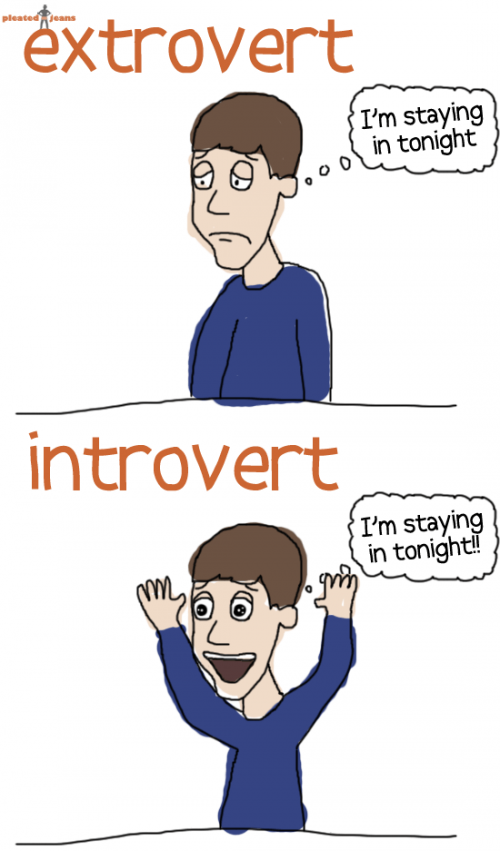 Take the Test! How Does Your Personality Determine Your Mate
Take the Test! How Does Your Personality Determine Your Mate
via humanmetrics.com –
Have you ever wondered what your personality says about you? You’ve heard it all before, you’re an introvert so you should look for an extrovert to compliment you or vice versa. Without proper knowledge, you’re making guesses as to what you really are and how it affects your life and choices of a mate. I stumbled across this site in which you can answer some questions and then they will give you a four letter acronym as to how you tested. There is power in the acronym.
I (Jenny) gladly took the test. My husband, Rufus, was already very sure that he was an extrovert. So I guess the test confirms the opposites attracts theory. Hmmm…wondering if the test would agree with Rufus’ guess. I am sharing my results with you all to let you see that it is very painless but highly informative based on how you answer the questions. Do I agree with my results? For the most part, especially since most writers are introverts. But since I am a human, I don’t think any test can really tell me…who I am…and why I do the things I do or make the choices I make. You can try it for yourself and mull over your results. Discuss them with a friend, or your mate and see if they agree. Just click the link at the bottom to get started.
INFJ Description
(INFJ stands for Introvert, iNtuitive, Feeling, Judging and represents individual’s preferences in four dimensions characterizing personality type, according to Jung’s and Briggs Myers’ theories of personality type.) – by Marina Margaret Heiss and Joe Butt
INFJs are distinguished by both their complexity of character and the unusual range and depth of their talents. Strongly humanitarian in outlook, INFJs tend to be idealists, and because of their J preference for closure and completion, they are generally “doers” as well as dreamers. This rare combination of vision and practicality often results in INFJs taking a disproportionate amount of responsibility in the various causes to which so many of them seem to be drawn.
INFJs are deeply concerned about their relations with individuals as well as the state of humanity at large. They are, in fact, sometimes mistaken for extroverts because they appear so outgoing and are so genuinely interested in people — a product of the Feeling function they most readily show to the world. On the contrary, INFJs are true introverts, who can only be emotionally intimate and fulfilled with a chosen few from among their long-term friends, family, or obvious “soul mates.” While instinctively courting the personal and organizational demands continually made upon them by others, at intervals INFJs will suddenly withdraw into themselves, sometimes shutting out even their intimates. This apparent paradox is a necessary escape valve for them, providing both time to rebuild their depleted resources and a filter to prevent the emotional overload to which they are so susceptible as inherent “givers.” As a pattern of behavior, it is perhaps the most confusing aspect of the enigmatic INFJ character to outsiders, and hence the most often misunderstood — particularly by those who have little experience with this rare type.
Due in part to the unique perspective produced by this alternation between detachment and involvement in the lives of the people around them, INFJs may well have the clearest insights of all the types into the motivations of others, for good and for evil. The most important contributing factor to this uncanny gift, however, are the empathic abilities often found in Fs, which seem to be especially heightened in the INFJ type (possibly by the dominance of the introverted N function).
This empathy can serve as a classic example of the two-edged nature of certain INFJ talents, as it can be strong enough to cause discomfort or pain in negative or stressful situations. More explicit inner conflicts are also not uncommon in INFJs; it is possible to speculate that the causes for some of these may lie in the specific combinations of preferences which define this complex type. For instance, there can sometimes be a “tug-of-war” between NF vision and idealism and the J practicality that urges compromise for the sake of achieving the highest priority goals. And the I and J combination, while perhaps enhancing self-awareness, may make it difficult for INFJs to articulate their deepest and most convoluted feelings.
Usually self-expression comes more easily to INFJs on paper, as they tend to have strong writing skills. Since in addition they often possess a strong personal charisma, INFJs are generally well-suited to the “inspirational” professions such as teaching (especially in higher education) and religious leadership. Psychology and counseling are other obvious choices, but overall, INFJs can be exceptionally difficult to pigeonhole by their career paths. Perhaps the best example of this occurs in the technical fields. Many INFJs perceive themselves at a disadvantage when dealing with the mystique and formality of “hard logic”, and in academic terms this may cause a tendency to gravitate towards the liberal arts rather than the sciences. However, the significant minority of INFJs who do pursue studies and careers in the latter areas tend to be as successful as their T counterparts, as it is *iNtuition* — the dominant function for the INFJ type — which governs the ability to understand abstract theory and implement it creatively.
In their own way, INFJs are just as much “systems builders” as are INTJs; the difference lies in that most INFJ “systems” are founded on human beings and human values, rather than information and technology. Their systems may for these reasons be conceptually “blurrier” than analogous NT ones, harder to measure in strict numerical terms, and easier to take for granted — yet it is these same underlying reasons which make the resulting contributions to society so vital and profound.
Beneath the quiet exterior, INFJs hold deep convictions about the weightier matters of life.Those who are activists – INFJs gravitate toward such a role – are there for the cause, not for personal glory or political power.
INFJs are champions of the oppressed and downtrodden.They often are found in the wake of an emergency, rescuing those who are in acute distress.INFJs may fantasize about getting revenge on those who victimize the defenseless.The concept of ‘poetic justice’ is appealing to the INFJ.
“There’s something rotten in Denmark.” Accurately suspicious about others’ motives, INFJs are not easily led.These are the people that you can rarely fool any of the time.Though affable and sympathetic to most, INFJs are selective about their friends. Such a friendship is a symbiotic bond that transcends mere words.
INFJs have a knack for fluency in language and facility in communication. In addition, nonverbal sensitivity enables the INFJ to know and be known by others intimately.
Writing, counseling, public service and even politics are areas where INFJs frequently find their niche.
CLICK HERE to take the Test and Receive your immediate results





